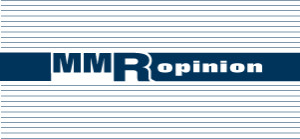February was a bit of a hiccup in terms of New Zealand’s COVID-19-free streak as it saw an abrupt three-day lockdown in Auckland exclusively. The city was at level three, which meant that people had to stay at home and could only leave for essential services. In New Zealand this means only visits to the hospital and grocery store, no “fun” shopping or cafe dwelling that is so often witnessed throughout Auckland.
 This lockdown has created an important question for the country: How do we deal with COVID-19 outbreaks and lockdowns at a time when the retail sector is healing from big losses in 2020? Last year saw two long sustained lockdowns, one nationwide and the other in Auckland. This resulted in more than 70 large retail outlets going out of business by July of 2020. COVID-19 also seriously damaged a large business sector in New Zealand, the cafe industry.
This lockdown has created an important question for the country: How do we deal with COVID-19 outbreaks and lockdowns at a time when the retail sector is healing from big losses in 2020? Last year saw two long sustained lockdowns, one nationwide and the other in Auckland. This resulted in more than 70 large retail outlets going out of business by July of 2020. COVID-19 also seriously damaged a large business sector in New Zealand, the cafe industry.
In New Zealand, cafe culture makes up a large part of our social lives. People use their local cafes as meeting places, places to get a quick cup-a-joe and also as their local bakers. However, during the lockdown cafes were cut off from life as restrictions on meeting people were implemented. Over 9,000 cafes lost big in 2020, and some of us saw our beloved eateries close their doors. Even after the lockdown was over, limited seating cost some restaurants, as they were not able to make as much money during busy periods. This $6 billion industry was cut off, but as we leave our third lockdown economists are predicting growth as people meet once more with friends and family, and the desire to eat out once again expands.
But this begs the question: How does the government make sure no COVID-19 cases are transmitted through the places where we eat and frolic? As the vaccine rollout has just begun here, it is crucial that we stay safe and allow the distribution to be accelerated. To help track peoples’ travels the government has released a free app. This app has a camera to scan QR codes posted at each business visited. People scan the codes, which are recorded for up to 60 days. The government uses this data to correlate where people have been and who they have been in contact with.
This app played a crucial part in tracking down the most recent COVID-19 cases, and can have huge implications for retail. If stores continue to use this, it means that the government can simply close down individual stores instead of blocks or cities or the entire country in the case of a new community case. However, as seen previously, if a business is found to have had a customer with COVID-19, it warrants a thorough cleansing from COVID-19 control agencies.
Among the other methods the government has employed is the use of targeted lockdowns. The most recent lockdown in Auckland warranted a three-day-long mass closure. During that time the COVID tracker app’s data was analyzed, and COVID-19 tests were collected.
This method has warranted some criticism from retailers. Auckland’s Chamber of Commerce chief executive said that an even more “clinical” approach would be better. He also criticized the lack of warnings given to retailers and the hospitality sector, both which need time to prepare, to manage stock, such as produce, that could spoil easily.
On a more positive note, new data predicts that spending from lower- and middle-class earners will increase. Illion, an Oceanic data provider, noted in a late November 2020 report that lower-income earners are spending roughly the same amount they were before the pandemic. Notable areas of growth include the fitness industry, where spending has increased by 180%. Other areas of growth include health services, personal care and alcohol.
Another interesting area is domestic travel. Although international travel is crucial to New Zealand’s economy, domestic travel still fuels small businesses in tourist towns. In between lockdowns came the Christmas and end-of-year school holidays. This saw New Zealanders traveling cross-country, and Illion reported an increase in road tolls of over 500%.
Although there was a lockdown this month in Auckland, a spending splurge is predicted as Aucklanders are released from their homes and go back to their cafes and favorite stores. Even better news is that tourists may soon be allowed back into the country.
Max Liebmann is the MMR correspondent in New Zealand.




You must be logged in to post a comment Login